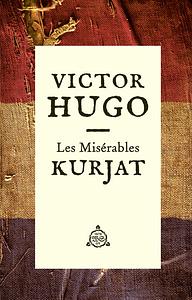Take a photo of a barcode or cover
adventurous
emotional
hopeful
informative
inspiring
lighthearted
reflective
sad
medium-paced
Plot or Character Driven:
A mix
Strong character development:
Yes
Loveable characters:
Yes
Diverse cast of characters:
Yes
Flaws of characters a main focus:
Yes
Eine der großartigsten und vielseitigsten Geschichten der Weltliteratur. Definitiv ein Lieblingsbuch. Der Roman hat mich seit 2013 sehr geprägt, als ich davon zum ersten Mal erfuhr als Jugendliche. Von Herzen eine große Empfehlung.
adventurous
challenging
dark
emotional
sad
tense
slow-paced
Plot or Character Driven:
A mix
Strong character development:
Yes
Loveable characters:
Yes
Diverse cast of characters:
Yes
Flaws of characters a main focus:
Yes
adventurous
challenging
dark
emotional
funny
informative
slow-paced
Plot or Character Driven:
A mix
Strong character development:
Yes
Loveable characters:
Yes
Diverse cast of characters:
Yes
Flaws of characters a main focus:
Yes
I thought I was going to be reading about Parisian sewers for the rest of my life. That was such an insane amount of time to spend on the history of the sewer system. I mean like... That's truly a wild literary choice.
Its epic scope seemed a bit much at times, but everything and everyone mentioned had some importance in the grand scheme of the novel, which was cool to see. Definitely a memorable experience.
challenging
emotional
funny
relaxing
sad
slow-paced
medium-paced
Plot or Character Driven:
A mix
Strong character development:
Yes
Loveable characters:
Yes
Flaws of characters a main focus:
Yes
adventurous
challenging
dark
funny
inspiring
sad
slow-paced
Plot or Character Driven:
Character
Strong character development:
Yes
Loveable characters:
Complicated
Diverse cast of characters:
Complicated
Flaws of characters a main focus:
Yes
Le Mis
I feel like writing this review is going to really show my age, as I was going to start this by referencing the “recent” Hugh Jackman led musical, but seeing that was released in 2012 makes me realize that some people won’t even know what I’m talking about. But the thing is Les Misérables has always has a special place for me because I remember the 80s musical through my Mum watching the VHS frequently. It was very pivotal because while I never watched the whole thing through or actually understood any of the plot, I DID pick up on the fact that JvJ was being pursued by a cop with a very similar name and my young brain was like “shouldn’t the cop be the good guy?? but it seems like Jean Valjean is the good guy…”
Anyways, its always been on my list to get through this massive tome of a book, and mein gott I do have to say that this IS a tome. At 1300 pages, high word count pages too, its taken me 5-6 weeks to get through it (in all honesty I’ve started this review before I’ve even finished to make sure I don’t lose my memory of it, its so long).
(I am going to reference the Jackman musical a lot, more because that was my main reference point in understanding this story and despite is being a little older than I thought I’m assuming that anyone reading this review will be familiar as well)
I was curious as to how the page-time of this book was so padded, and even the introduction points out that at times there are massive tangents and that the book sometimes seemed about entirely unrelated characters. I found this a little harsh, but not wrong. For example the first 50 pages of the book (which tbf mathematically is less than 5% of the book) are entirely devoted to introducing the Priest that forgives JvJ for attempting to rob him and gives him the silverware, jump-starting his redemption arc. Again, in defence of the story, even though the Priest barely features throughout the rest of the tale, this introduction provides not only an explanation of why the Priest helps Jackma- uh Jean Valjean out, but kind of allows Hugo to provide an essay on what he thinks a good person is like, given that the book is very morally grey.
Honestly though, other than that slow intro the first part is probably the most ‘tight’ and covers familiar story territory, we do spend longer on Fantine’s background and a lot more thorough explanation of how Jean Valjean manages to amass a fortune.
While Hugo’s writing has all the trappings of what I can only describe as ‘old-timey’ writing, lots of description, lots of backstory he also has an interesting foible where he will provide a sort of “explanation.”
For example when we are introduced to Fantine, her 3 friends and their 4 boyfriends (who in an actually quite shocking twist for a story I’m already familiar with) one day the BFs tell the girls they have a big surprise and to ‘wait right there’ literally all jump on a horse and cart and GTFO and ghost the lot of them– Fantine of course being left with a small child from her apparent paramour. Hugo though provides lengthy explanation about the culture of the time and expectation (or lack of expectation) for young men.
The real page weight starts to occur later though. Part one feels like it ends relatively early in the book and I did genuinely wonder what on Earth was going to pad the pages – and here we go.
- A lengthy summary of the Battel of Waterloo
- An explanation about the streets of Paris and how they’ve changed between the time when the book was set and when Hugo wrote it
- An essay on slang
- A beyond thorough explanation of Paris’ sewers
Now many of these parts are distally related to the story. Thenarndier (Master of the House Keeper of the Inn) has a link to the battle, JvJ of course flees through the streets and the sewers, the Slang section I *think* had elements of class discussion.
What I’m trying to summarize is that the next parts of the book had a LOT of these diversions, and look there is no real way around this, it’s a LOT of material and I have to be honest and say learning about Paris’ sewers didn’t enhance or inform JvJ’s escape through them if anything it was an almost comical distraction from the real story!!
Now that said, this doesn’t mean that Le Mis is a drag, the actual story points are incredible tense, I love how Jean Valjean and Javert are written – the barricade scenes are beyond intense and the book stands on that sheer emotional impact alone. Hugo also just has some absolutely brilliant, and some kind of deranged lines:
“there are some things we should not attempt to describe, the Sun being one of them.”
“In the throes of violent emotion you do not read, you wrestle, as it were, with the piece of paper you are holding”
“One of the two sides is obviously mistaken. Right does not stand like the Colossus of Rhodes on two shores at once… but those who are mistaken are sincere in their mistake.”
“Javert did not say ‘let’s get a move on!’ He said, ‘lessghehmwuhahn’ no spelling can do justice to the way in which it was uttered.”
On that last note Hugo has some pretty damn funny humour scattered throughout this book, the moment that Marius is stalking Cossette and thinks he’s picked up her handkerchief and treasures it, only to later learn its Hugh Jackman’s LOL, LMAO even.
Getting to the end of this book feels like finishing a massive journey, the story actually ends pretty abruptly given the amount of pages devoted to every other detail which creates an almost surreal effect – NOT THAT I WAS ASKING FOR MORE PAGES – phew sorry for yelling, but its interesting that stark effect created by the fast end.
If you also follow my blog I’ll be doing a deep dive with a more detailed breakdown soon.




